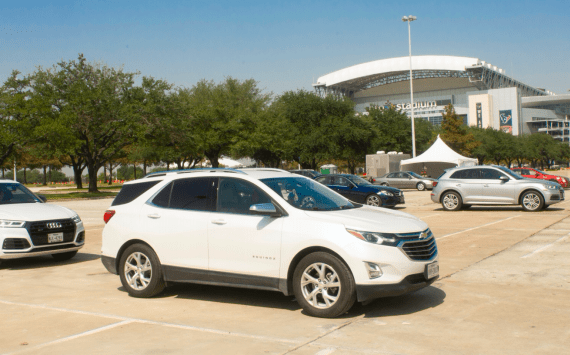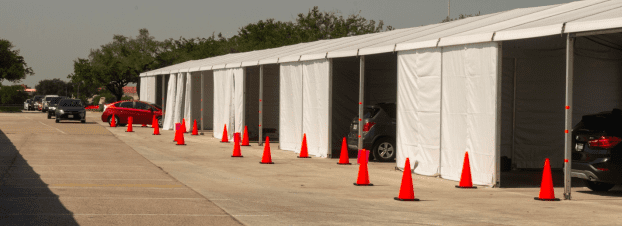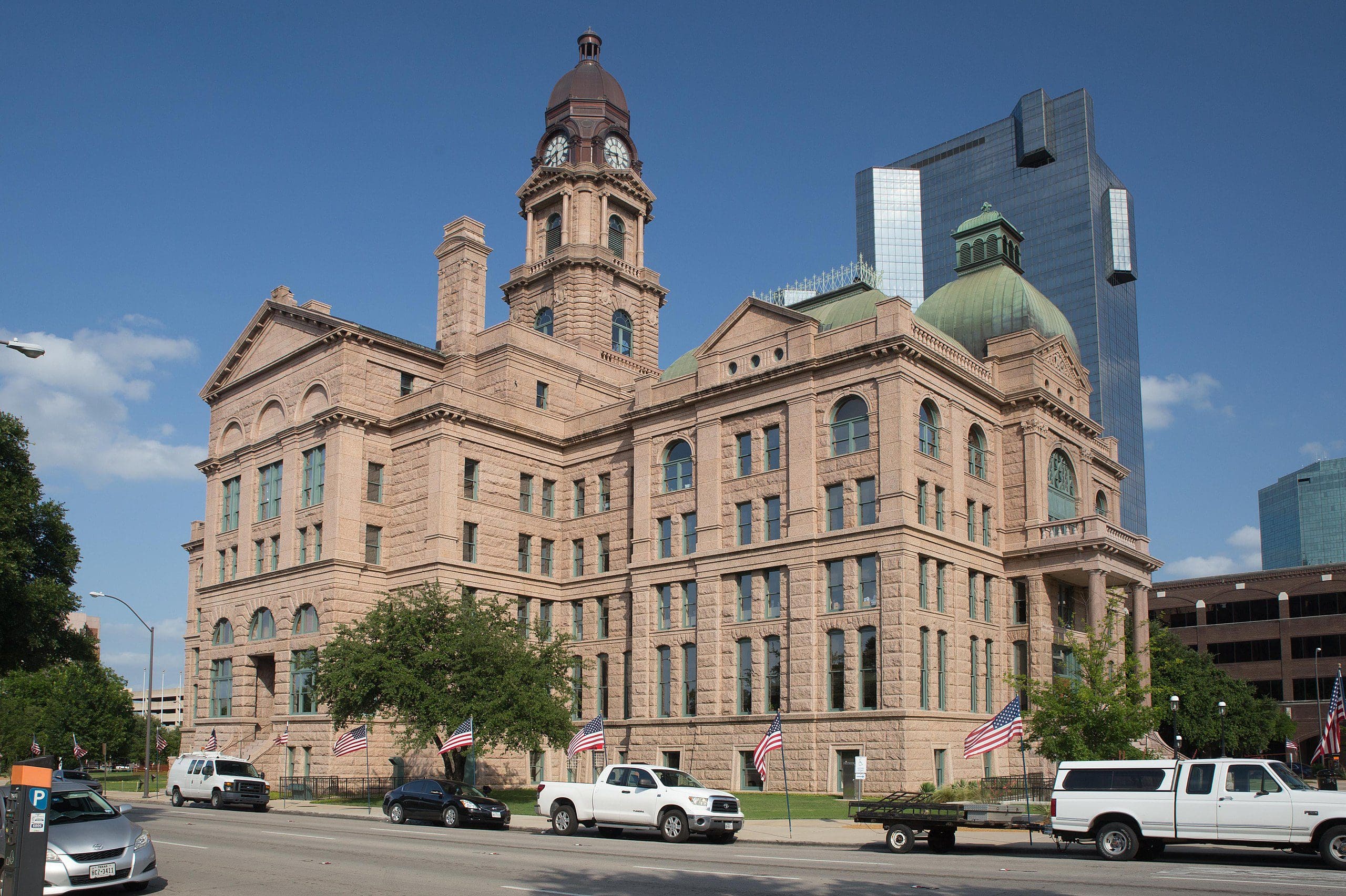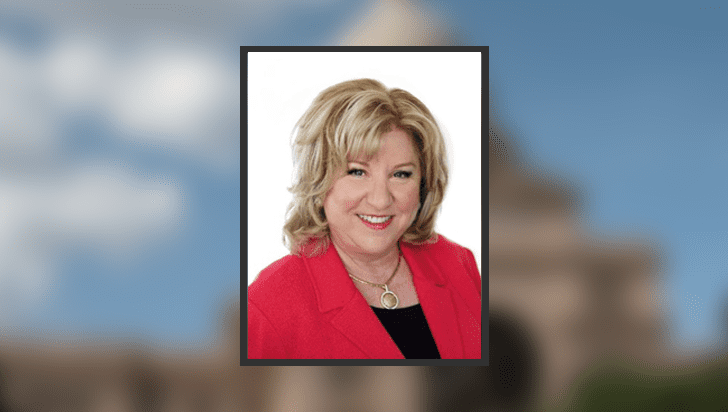As record numbers of Texans go to the polls to vote early in the November election, Texas election officials received a warning that making up their own voting rules “is unlawful and could result in legal liability.”
Harris County Clerk Chris Hollins, a Texas Democrat Party official appointed in May as interim head of elections by the county’s Democrat-majority commissioners court, has set up 10 “drive-thru” voting locations across the county for the November election, using the COVID-19 pandemic as a pretext to “create” a “new method of voting” that is outside the scope of state law:
Harris County is the first jurisdiction in Texas history to create this new method of voting at scale that allows any registered voter to cast their ballot without leaving the comfort of their vehicle.
State Sen. Paul Bettencourt (R–Houston) noted nine of the 10 drive-thru voting locations are in Democrat areas of the county, adding that “nothing in the Texas election code allows Mr. Hollins to do this setup.”
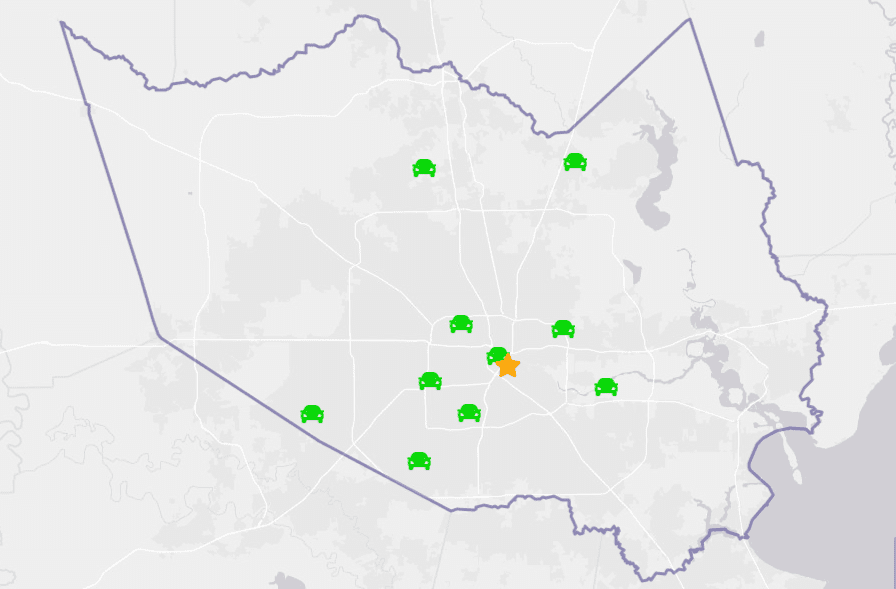 On Friday, Texas Attorney General Ken Paxton issued a guidance letter reminding local elections administrators who have expanded their use of “curbside” voting this election season in response to Chinese coronavirus concerns—including offering “drive-thru” voting to all registered voters—they must follow rules set out in state election laws.
On Friday, Texas Attorney General Ken Paxton issued a guidance letter reminding local elections administrators who have expanded their use of “curbside” voting this election season in response to Chinese coronavirus concerns—including offering “drive-thru” voting to all registered voters—they must follow rules set out in state election laws.
The AG’s warning is aimed at Hollins, who acts as the chief election officer for the state’s most populous county.
Texas Election Code “makes no provision for ‘drive-thru’ voting centers at which any voter may cast a ballot from his or her vehicle,” the letter notes:
[T]he Election Code provides curbside voting as an option only to those who meet a certain, narrow set of criteria. Curbside voting is not, as some have asserted contrary to Texas law, an option for any and all voters who simply wish to vote from the comfort of their cars when they are physically able to enter the polling place. …
The Code makes no provision for polling places located outdoors, in parking lots, or in parking structures. More specifically, the Code makes no provision for “drive-thru” voting centers at which any voter may cast a ballot from his or her vehicle regardless of physical condition.
The notice further explains that the law allows “curbside” voting only for voters who face physical barriers to entering polling places, and such voters may be provided a ballot “at the polling place entrance or curb.”
Paxton says it is “unlawful for an election official to allow” ineligible voters to cast ballots outside the polling place, and “officials should not actively encourage voters to engage in unauthorized curbside voting when they fail to meet the requisite legal criteria.”
“Fear of COVID-19 does not render a voter physically unable to cast a ballot inside a polling place without assistance,” Paxton’s letter adds, referring to a ruling on the issue by the Texas Supreme Court earlier this year. “Accordingly, election officials should not advise voters that such fear qualifies them to cast a curbside ballot.”
Two Texas Republican groups filed lawsuits last week asking courts to compel Hollins to stop making up his own voting rules and follow state election laws governing curbside voting.
Under Texas Election Code, the Supreme Court or a court of appeals may issue a writ of mandamus to compel the performance of any duty imposed by law in connection with holding an election.
The mandamus petition filed by the Republican Party of Texas was dismissed by 14th Court of Appeals in Houston. The court ruled the plaintiffs didn’t prove any specific harm caused by Hollins’ creative voting scheme and, with the election already underway, they had waited too long to complain.
The Harris County Republican Party’s case is still working its way through the Texas Supreme Court. Hollins’ response filed yesterday cites the appellate court ruling and claims that “drive-thru” voting is not “curbside” voting and drive-thru locations are the same as traditional polling places.
Hollins has made other attempts to circumvent state election laws during his brief tenure. His scheme to send unsolicited mail-ballot applications to all 2.37 million registered voters in Harris County was blocked by the Texas Supreme Court. Harris accounts for nearly 15 percent of all registered voters in Texas.
Paxton’s letter concludes with a clear notice to Hollins and other elections officials who fail to follow the law:
Elections must be held in compliance with these Election Code provisions. Encouraging or facilitating election operations that violate these rules is unlawful and could result in legal liability for political subdivisions and their officials.
Early voting is underway now through October 30. Election Day is November 3.
The AG’s complete guidance letter can be read here.
